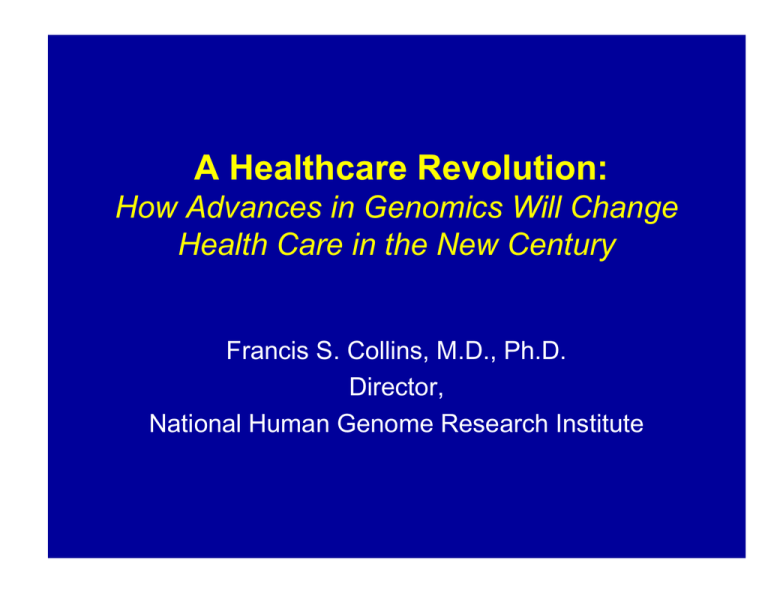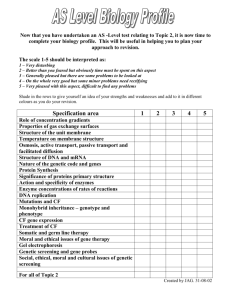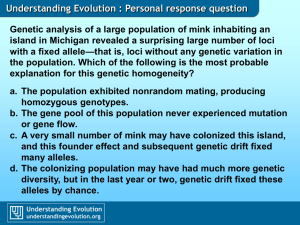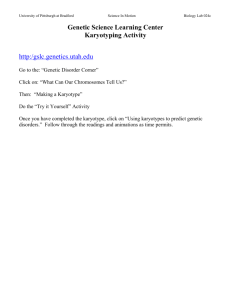A Healthcare Revolution: How Advances in Genomics Will Change
advertisement

A Healthcare Revolution: How Advances in Genomics Will Change Health Care in the New Century Francis S. Collins, M.D., Ph.D. Director, National Human Genome Research Institute There are no perfect genetic specimens All of us carry an estimated 5-50 significant gene flaws Applications of Genetic Tests Confirm a suspected clinical diagnosis Detect a carrier for a recessive disease Prenatal diagnosis Newborn screening Susceptibility testing for a healthy individual Prediction of responsiveness to therapy HEMOCHROMATOSIS Overabsorption of iron from GI tract Consequences: Cirrhosis Heart failure Diabetes Arthritis Autosomal recessive with 1:300 homozygous Most due to Cys Tyr at codon 282 of HFE Diagnosis often missed EASILY TREATABLE Ethical, Legal, and Social Implications An integral component of the Human Genome Project Will effective legislative solutions to genetic discrimination be found? Will we successfully shepherd new genetic tests from research into clinical practice? Can health care providers and the public become genetically literate in time? Will the benefits of the advances in genetics only be available to a privileged few? Will we arrive at consensus about the limits of genetic technology for trait enhancement? 2010 Predictive genetic tests available for a dozen conditions Interventions to reduce risk available for several of these Many primary care providers begin to practice genetic medicine Preimplantation diagnosis widely available, limits being fiercely debated Reasonably effective federal legislative solutions to genetic discrimination and privacy in place in US Access remains inequitable, especially in developing world 2020 Gene-based designer drugs for diabetes, hypertension, etc., coming on the market Cancer therapy is precisely targeted to molecular fingerprint of tumor Dx/Rx pharmacogenomic approach is standard practice for many drugs Mental illness diagnosis transformed, new therapies under study, societal views shifting Homologous recombination technology suggests germline gene therapy could be safe 2030 Comprehensive genomics-based health care is the norm Individualized preventive medicine available Environmental factors, and their interaction with genotype, pinpointed for many diseases Illnesses are detected early by molecular surveillance Gene therapy and gene-based drug therapy available for many diseases Full computer model of human cell replaces many laboratory experiments Average life span reaches 90 years, stressing prior socioeconomic norms Major anti-technology movements active in US, elsewhere Serious debate is underway about humans possibly “taking charge” of their own evolution As for the future, your task is not to foresee, but to enable it Antoine de Saint-Exupery







